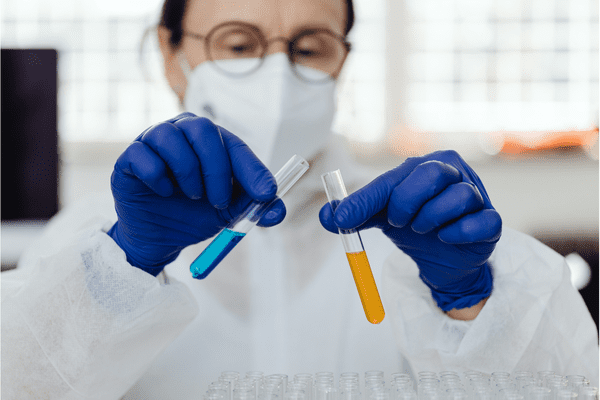Biomarker analysis plays a pivotal role in cancer care and research, guiding the development of targeted therapies and enabling personalized treatment plans. While next-generation sequencing (NGS) has revolutionized the ability to detect a wide array of genetic changes in a single test, its effectiveness is often limited by the quality and quantity of tumor tissue available for analysis.
Why Sample Integrity Matters
A major hurdle in genomic testing is the dependence on formalin-fixed paraffin-embedded (FFPE) samples, which are widely used for preserving tissue. Unfortunately, the chemical processing involved in FFPE preparation can compromise the integrity of DNA and RNA, making it difficult to extract sufficient material for sequencing. This issue is especially pronounced in small biopsies, such as those obtained via core needle procedures, which frequently yield only trace amounts of usable nucleic acids.
Dr. Erin Newburn, PhD, Director of Field Applications at Labcorp, emphasizes the scope of the problem:
“Samples from clinical trials often show significant degradation and low nucleic acid recovery, which complicates every step from extraction to data analysis.”
Enhancing Sample Utility Through Workflow Innovation
To overcome these limitations, laboratories are turning to automated and standardized protocols that improve the efficiency and reliability of sample processing. Labcorp has introduced dual extraction techniques specifically designed to boost both the quantity and quality of nucleic acids retrieved from FFPE specimens. These advancements help reduce the incidence of samples deemed insufficient for analysis.
Dr. Newburn explains:
“By automating and standardizing extraction workflows, we’re seeing marked improvements in sample quality, which translates to more successful sequencing and better clinical insights.”
In addition to improved extraction, robust quality control (QC) measures are essential. QC tools help identify and exclude unreliable data, ensuring that only high-confidence genetic variants are reported—an important safeguard against misleading results.
Expanding Insight with Comprehensive Genomic Platforms
To make the most of limited sample material, researchers are increasingly using broad sequencing approaches such as whole-exome sequencing (WES), whole-transcriptome sequencing (WTS), and expansive targeted panels. These platforms allow for the detection of a wide spectrum of genetic alterations, including emerging biomarkers that may inform future therapeutic strategies.
Dr. Newburn adds:
“Using comprehensive sequencing technologies allows teams to extract maximum value from minimal input, supporting both current and exploratory biomarker discovery.”
Strategic Approaches for Success in Low-Input Settings
Achieving reliable genomic profiling from constrained samples requires early collaboration with experienced sequencing partners. Key strategies include:
- Consistent extraction protocols that support reproducibility and scale
- QC-driven library preparation to enhance sequencing accuracy and minimize repeat testing
- Advanced sequencing systems capable of delivering meaningful results from small or degraded samples
These best practices not only improve the reliability of biomarker testing but also help streamline workflows, reduce costs, and accelerate timelines—critical benefits in both clinical and research environments.
Real-World Impact: Empowering Precision Trials
Case studies continue to demonstrate how optimized workflows and scalable technologies are enabling high-confidence variant detection, even in trials where sample quantity is a limiting factor. By refining every step of the process—from extraction to analysis—labs are unlocking the full potential of genomic data to guide cancer treatment and accelerate innovation.







